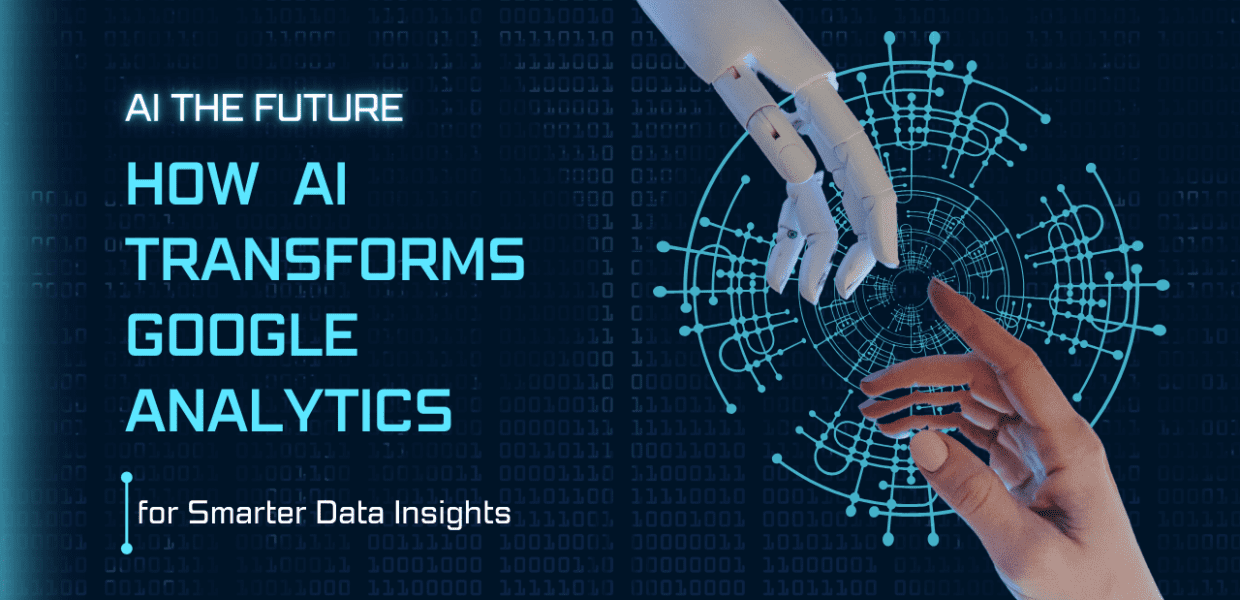
What is the Impact of AI on Google Analytics?
In the rapidly evolving world of digital analytics, the integration of Artificial Intelligence (AI) into Google Analytics is a game-changer. This powerful combination is reshaping how businesses understand and interact with their data. AI’s role in enhancing Google Analytics heralds a new era of insightful, efficient, and sophisticated data analysis. The journey of Google Analytics, from its inception to its current state, has always been about providing deeper insights into website traffic and user behavior. With the advent of AI, these insights have become more nuanced, predictive, and actionable.
AI Analytics – A New Era
The integration of AI algorithms into Google Analytics has unlocked new possibilities in data analysis. AI’s ability to learn and adapt has led to more accurate predictions and insights into user behavior. By analyzing patterns and trends in massive datasets, AI provides a level of understanding that was previously unattainable.
AI in Google Analytics manifests in various forms, from automated insights to anomaly detection. For example, it can automatically surface important data trends, saving analysts from hours of manual data sorting. This not only increases efficiency but also ensures that no critical insight is overlooked.
Deep Dives into Data: The AI Advantage
AI’s primary advantage in Google Analytics is its ability to process and analyze large datasets at an unprecedented speed. This efficiency is crucial in the era of big data, where the volume of information can be overwhelming.
Traditional analytics methods are often limited by the need for manual data interpretation, which can be time-consuming and subject to human error. AI-enhanced analytics, on the other hand, offers a more refined and accurate analysis. It can quickly identify correlations and patterns that might take humans much longer to uncover.
AI-Driven Predictive Analytics and Google Analytics
The introduction of AI-driven predictive analytics in Google Analytics is a significant leap forward. Predictive analytics uses AI algorithms to forecast future trends based on historical data. This capability enables businesses to anticipate user behavior, market trends, and potential outcomes, allowing for proactive strategy adjustments.
For instance, e-commerce sites can predict which products might see a surge in demand, based on AI’s analysis of past user behavior and purchase patterns. Similarly, content websites can anticipate which topics will engage readers the most, optimizing their content strategy for maximum impact.
Real-world applications of these predictive capabilities are numerous. From improving customer experience by personalizing recommendations to optimizing marketing campaigns for better ROI, the potential is vast and varied.

Enhancing User Experience with AI
AI in Google Analytics plays a crucial role in enhancing user experience (UX) through personalized insights. By analyzing user interactions and preferences, AI can help create a more tailored experience for website visitors.
For example, AI can identify which website elements are most engaging to different segments of the audience. This insight allows for the customization of content, layout, and even functionalities to suit the preferences of various user groups, leading to improved engagement and satisfaction.
Real-life examples include websites that dynamically adjust content and recommendations based on user behavior, thus creating a more engaging and relevant experience for each visitor.
Visit Finderr to explore how AGI can transform your approach to data analysis, providing you with the insights you need to grow your business
The Future of SEO: AI-Optimized Strategies
SEO is an ever-evolving field, and AI’s role in Google Analytics is setting new standards. AI helps in identifying emerging SEO trends and provides insights on how to optimize websites accordingly.
One of the key impacts of AI on SEO is its ability to analyze large sets of SERP data. This analysis helps in understanding what content ranks higher and why, allowing SEO specialists to refine their strategies for better performance.
Moreover, AI can suggest the most effective keywords and phrases based on real-time search trends, thus keeping SEO strategies aligned with current market dynamics.
Overcoming Challenges with AI Analytics
While AI in Google Analytics presents numerous opportunities, it also comes with its set of challenges. One significant challenge is the complexity of AI algorithms, which can be difficult to understand and interpret for those without a technical background. This complexity can sometimes lead to misinterpretation of data or an overreliance on automated insights without a deeper understanding of the underlying factors.
Another challenge is ensuring data privacy and security, especially when dealing with sensitive user information. As AI systems require access to vast amounts of data, ensuring that this data is handled responsibly is paramount.
To overcome these challenges, businesses must focus on education and training in AI analytics, coupled with robust data governance policies. It’s also crucial to balance AI insights with human oversight to ensure a comprehensive understanding of the data.
AGI and Finderr – Automating Insights for Efficiency
Advanced General Intelligence (AGI) takes AI’s capabilities a step further. AGI systems, like Finderr, are designed to perform tasks across a range of functions and industries, automating insights for website and SaaS owners. Finderr leverages AGI to analyze data from various sources, providing comprehensive insights that are not limited to a single domain.
Finderr’s application in Google Analytics allows businesses to automate most of their data analysis processes. It can identify trends, suggest improvements, and even predict future user behavior with a high degree of accuracy. This level of automation saves time and resources, allowing business owners to focus more on strategy and less on data analysis.
The integration of AGI with analytics tools is a testament to how far the field has evolved. It signifies a move towards more intelligent, efficient, and versatile data analysis tools, capable of adapting to a wide range of business needs.
Embracing the Future with AI and AGI in Analytics
The integration of AI, and more so AGI, into tools like Google Analytics is not just a trend but a significant shift in how we approach data analysis. These technologies offer smarter, faster, and more efficient ways of deriving insights, making them indispensable for businesses looking to stay competitive in a data-driven world. As we step into the future, it’s clear that AI and AGI will continue to play a pivotal role in transforming data analytics. For businesses, the key will be to embrace these technologies, understanding their potential and limitations, to fully leverage the power of data.


